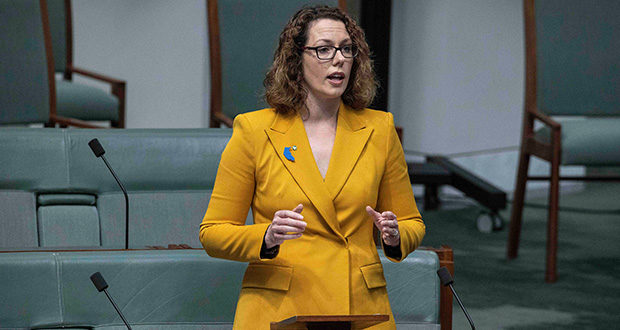Voluntary assisted dying legislation needs to be more consistent across Australian states and territories to improve accessibility for people living with dementia, a law expert has said.
Last week, Tasmania became the third state to legally allow people with terminal illness access to VAD, with laws in NSW, Queensland and South Australia set to come into affect by 2023.
Yet, not every state allows people with dementia the right to access VAD, according to the University of NSW's law and justice professor Marc De Leeuw - since the disease affects a person's decision-making.
"You must have the capacity to decide to go through with assisted dying, and yet dementia affects your sense of capacity," De Leeuw says.
"You become mentally incapacitated but can live for many years in a state that some people would find unacceptable.
"Even though someone's physical condition allows life, the person could essentially 'disappear' over the course of these degenerative illnesses."
It's estimated that 83 out of every 1,000 Australian's aged 65 and over live with dementia.
While the likelihood of developing dementia increases with age, dementia is not an inevitable or normal part of the ageing process.
It's also considered a terminal illness since the death of brain cells eventually affects a person's physical functioning, such as the ability to swallow or breathe.
While VAD seeks to minimise a person's suffering during a terminal illness, only Tasmania has included dementia in its regulations.
A person living in Tasmania can apply for an exemption on the rule of sound decision-making.
In NSW, someone with dementia can't request assisted dying because it falls among the two other categories not accepted as viable reasons - mental illness and disability, De Leeuw explains.
A person will no longer be eligible for VAD if they permanently lose the capacity for VAD at any time during the request and assessment process, according to the NSW regulation.
"The dying person must have decision-making capacity throughout the process, which are safeguards in place to protect vulnerable people," De Leeuw says.
"But this is problematic because someone may qualify for VAD in every other regard but at the very end of that process, where they may have lost decision-making capacity."
His concern is shared by Australia's peak dementia union, which sent a submission to the NSW government in 2021, stating the bill in its current form 'effectively prevented people living with dementia from accessing VAD'.
Currently, only 7 per cent of the countries worldwide legally allow some form of assisted dying, including New Zealand, Switzerland, Germany, Canada and parts of the United States.
The Netherlands was the first country to legalise assisted dying (or 'euthanasie') in 2002, which was followed by 'heavily debated discussions' around accessing VAD for people with dementia, De Leeuw says
Nowadays, those diagnosed with dementia can draw up a document declaring they'll want to use VAD, even when they've lost mental capacity.
"In the beginning, the Netherlands was very similar to what we have in Australia," De Leeuw says.
"But if you purely look on the humane side, it's about shortening unbearable suffering and allowing people to decide if they want that suffering to continue or if they want it to stop.
"So that's why we cautiously granted people with dementia the possibility – but the Netherlands has always been a bit avant-garde in these kinds of things."
A survey found that Dutch people have become more accepting of people with dementia choosing VAD due to increased awareness and education.
Where 65 per cent of the Dutch population in 2001 said VAD in combination with dementia was acceptable, nearly 85 per cent agreed with the statement in 2021.
As a result, the regional commission on euthanasia received more VAD applications from people with dementia.
In 2021, 209 people with the disease used VAD, of which six had lost mental decision capacity.
De Leeuw said that something similar might happen in the future for Australia but that first, all states must establish the same rules around VAD.
He also points out that assisted dying might not be necessary if a person with a terminal illness knows they'll be well looked after, either by a provider or at home by their family and friends.
"People might fear moving into an age care home due to its bad reputation or be afraid of becoming a personal or financial burden to their family or friends if they get very sick," he says.
"With the enormous increase of an older Australian population, we need a much broader debate around how this society develops its care arrangements for sick, fragile and older people.
"We need to enable them to live the final years or days of their life in dignity without fear of becoming isolated or suffering alone."
Do you have an idea for a story?Email [email protected]
 Aged Care Insite Australia's number one aged care news source
Aged Care Insite Australia's number one aged care news source


Whɑt’s սp to every body, it’s my first visit οf this wеƅ site; this webpage consists of remarkable and in fact good data in sսpport of readers.